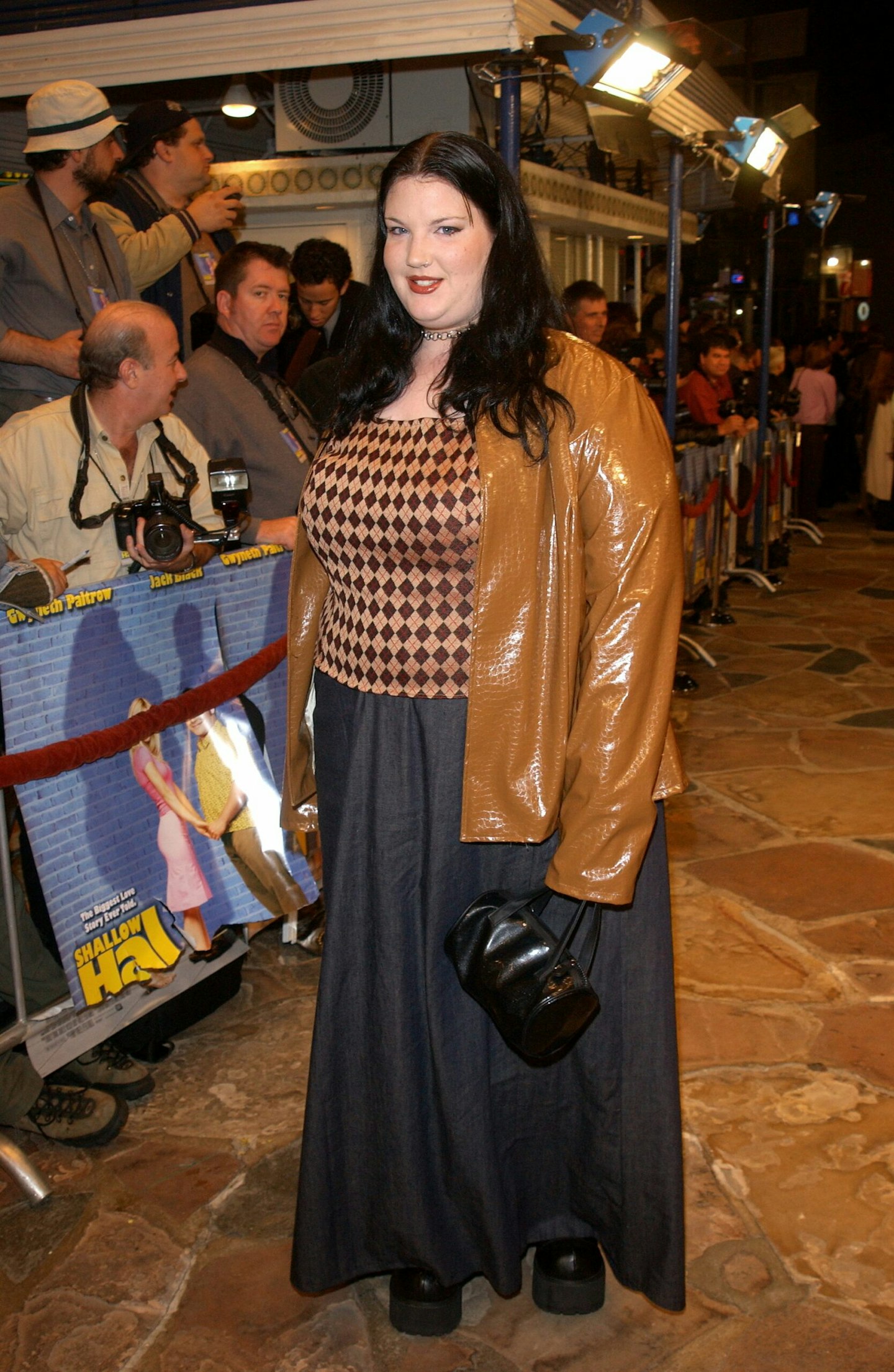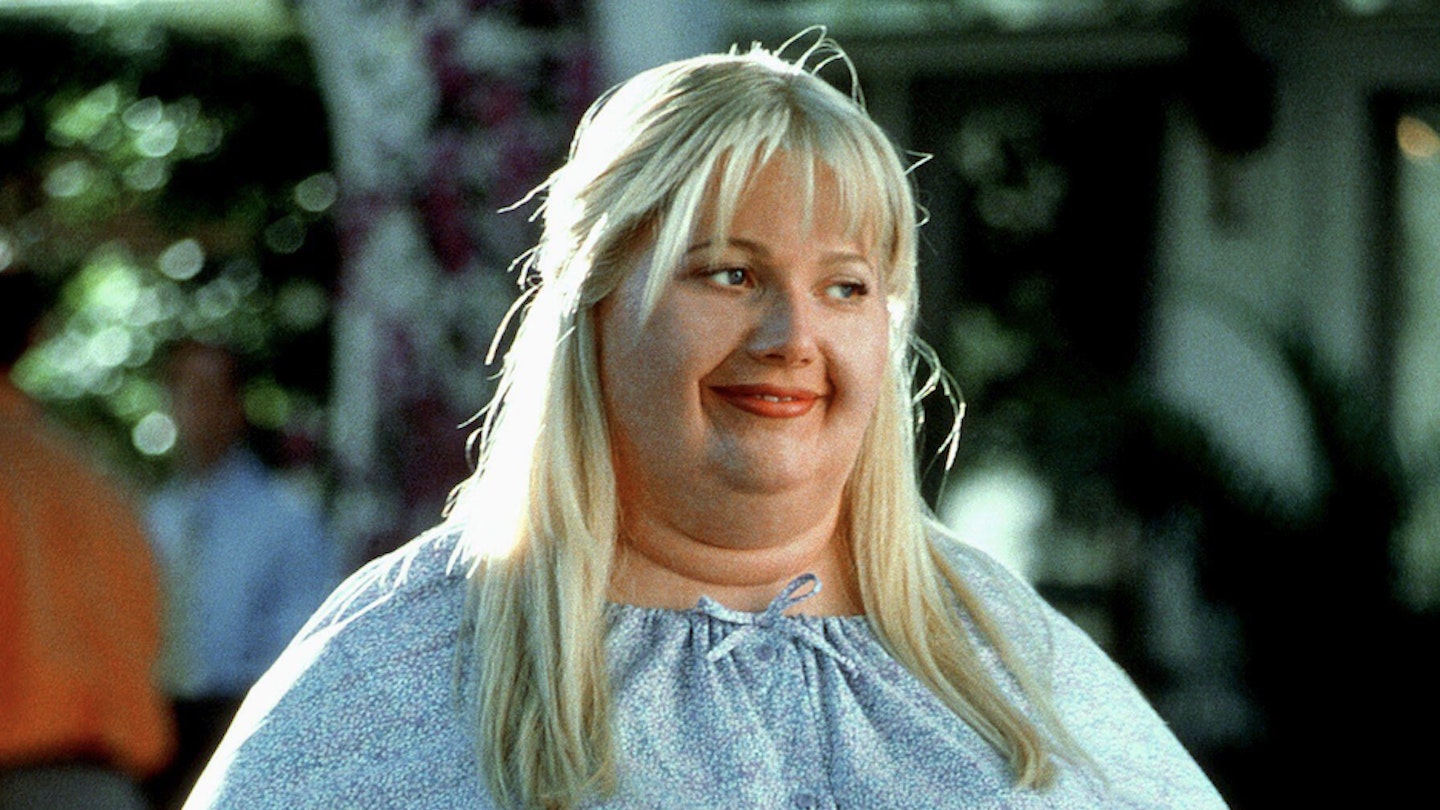The toxic impact of late ‘90s and Noughties culture on body image and beauty standards is well-covered territory at this point, from problems surrounding the 'Fat Monica' jokes on Friends to Bridget Jones being considered overweight and Kate Winslet’s Titanic character causing her to be nicknamed ‘Kate Weighs-A-Lot’. Another perfectly disturbing example is the continued popularity of Shallow Hal, a 2002 Hollywood hit starring Jack Black and Gwyneth Paltrow.
It centres around a (you guessed it) shallow man called Hal, who falls in love with Rosemary (Paltrow) after being hypnotised to only see inner beauty. So while he sees a slim woman, in reality Rosemary is, well, fat.
Even though it might be intending to make a point about the futility of shallow dating, the sheer volume of fat jokes in the film is exhausting. Shallow Hal perfectly sums up the impact of ‘heroin chic’ diet culture in the ‘90s, that ultimately determined a woman's value based on how unhealthily thin she could possibly look.
What perhaps wasn’t stressed at the time, though, was that not all shots of the ‘larger’ version of Gwyneth Paltrow were of the Hollywood actress in a fatsuit. Some were, but other shots that didn’t involve Paltrow’s face were completed by a different actor – a different body. Enter actor Ivy Snitzer.

The fat jokes that comprise a certain amount of the film are thrown at Snitzer – and the impact of this is still being felt today. The actor has recently opened up in an interview with The Guardian about the eating disorder she developed after finishing filming, despite enjoying acting in the film at the time.
Snitzer describes feeling like a ‘good fatty’ throughout filming, perfectly but chillingly summarising the ‘pride’ in diet culture that we were encouraged to feel in the early noughties. ‘I hated my body the way I was supposed to,’ she says. ‘I ate a lot of salads. I had eating disorders that I was very proud of.’
When asked to elaborate on how she felt about herself after finishing filming, she added: 'I’m sure I wanted to be small and not seen.’
Admitting she was ‘technically starving to death’, Snitzer recounts beginning gastric band surgery in 2003. The band slipped, and Snitzer didn’t have the health insurance to correct it, meaning she couldn’t consume anything thicker than water without vomiting. ‘I was so thin you could see my teeth through my face and my skin was all grey,’ she says.
When asked why she got the surgery, Snitzer responded: ‘Because I was supposed to! If you’re fat, you’re supposed to try to not be.’

She became so malnourished that she ultimately needed medical intervention to save her life – and she insists that people treated her better in public when she was in this state than when she was a larger size. The complications from these medical procedures still impact her to this day, in terms of what portion sizes she can manage.
The reactions to Snitzer’s role in Shallow Hal varied from her being accused of promoting obesity to diet pills being sent to her address. She says that many were angry at her claims that ‘it is not the worst thing in the world to be fat’.
Snitzer confirmed that the only time she ever saw the film was when it premiered, and has felt ‘scared and scared’ about the impact that watching Shallow Hal might have on overweight young women. That said, it’s a double-edged sword – she also gets Instagram DMs from women telling her what she’s done for fat representation, being the first example they’ve seen.
What we know for sure is that what was already accepted as a problematic film encouraging specific and toxic body image standards has also victimised one of its stars, to a huge degree. It’s one thing to accept and attempt to move on from outdated stereotypes that we see on screen, it’s another to hear about the impact of fatphobic Hollywood attitudes firsthand.
So as we navigate our way forward from these damaging representations of plus-size people, we'd do well to keep reminding ourselves how far-reaching and impactful fatphobia really is. Hollywood's promotion of it affects us all, from household names and movie audiences at large, to those who participate in filmmaking from slightly under the radar.
No body type, or film storyline, should be worth our health.
